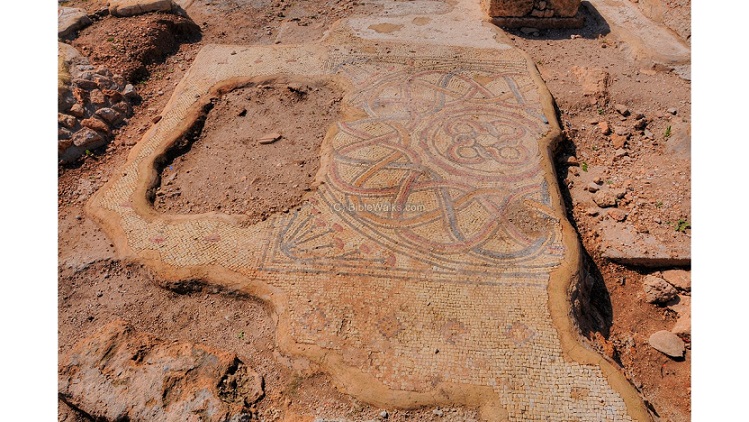.
Tel Shikmona
Mosaics here surprise: you wouldn’t know,
tramping on thistles, dry late-summer stubble
and tripping over rubble, stumbling, slow,
that this rough trail leads to the long-ago
till suddenly—a broken arch, a floor
patterned in blue red black, flowers and birds
outlined in tesserae; below them, words
in Greek, a cross; this church by a rocky shore
for fifteen hundred years has lain here
abandoned, eon-battered, yet still haunted
by echoes of shuffled feet and plainsong chanted:
felt, though unheard, upon the quivering air.
Silence; a cooling breeze as evening falls
upon the ghosts; a spur-winged plover calls
its lonely sik-sik-sik; above the shallows
a pied kingfisher hovers, hunting minnows.
Previously published in The Orchards Poetry Journal, June 2021.
.
.
Judy Koren, from Haifa, Israel, has a degree in English literature and spent most of her career as a freelance information analyst. Her poems have appeared in literary magazines in Israel and abroad, including The Deronda Review, the Voices Israel Anthology, Better Than Starbucks; Blue Unicorn; Grand Little Things; Lighten Up Online; The Orchards Poetry Journal; The Road Not Taken and The Taj Mahal Review. She is currently President of the Israeli English-language poetry society, Voices Israel.















Thanks for your beautiful poem and blessings on all you do…Allegra
Thank you Allegra (what a beautiful name!)
Judy, this poem is perfect: each line, each stanza, the meter and rhyme work separately and together to create the haunting effect of visiting an ancient site. I wouldn’t have thought of including echoes of plainsong, but you recall the Hebraic origins of Christian chant Eastern and Western, based on the music of the Jerusalem Temple, performed by converted priests (Acts 6:7) who would have been experts in Jewish liturgy. Great sonic complement to the contemporary bird calls in the last stanza of this wondrous work.
I admit I was not aware of the Hebraic origins of plainsong but then each reader brings to a poem their own experience which enriches the poem for them, each in their own way. And yes, the imagined plainsong did complement the lonely call of that plover :). Thank you for your appreciation and I’m so glad the poem resonated with you.
That first stanza is masterful, to my ear, and the rest of the poem delights equally.
I admit I worked hard on the first stanza :). So happy you like it.
The topic, the meter, the rhyme – they all demand a second or third reading and get better each time.
A very vivid read. Thanks for posting, Judy.
Thank you for your appreciation, Paul.
This is a lovely poem! The third stanza, in particular, with its movement and song, brings the scene to life.
Thank you David. I’m so happy you like it.